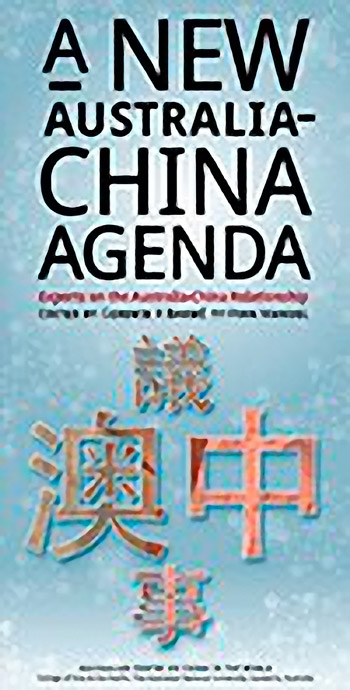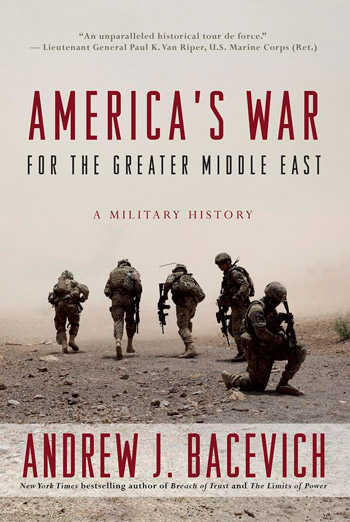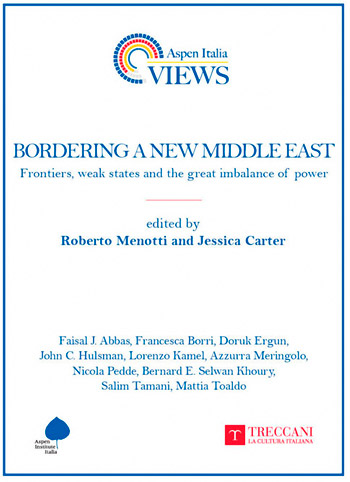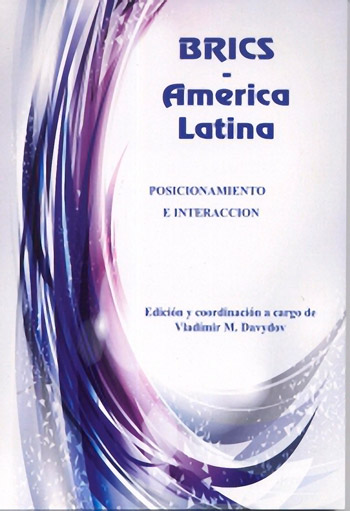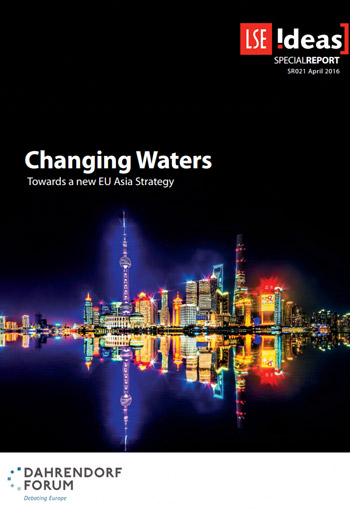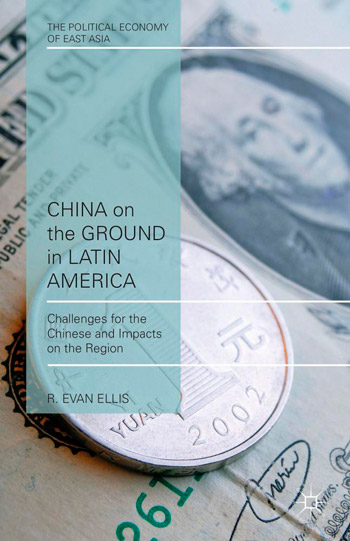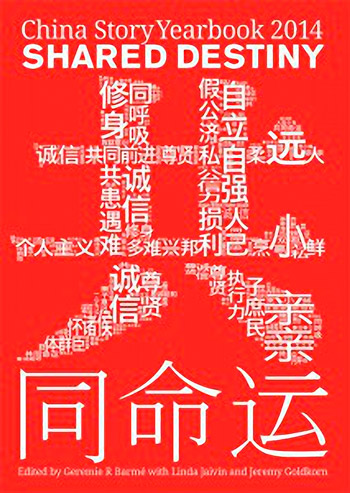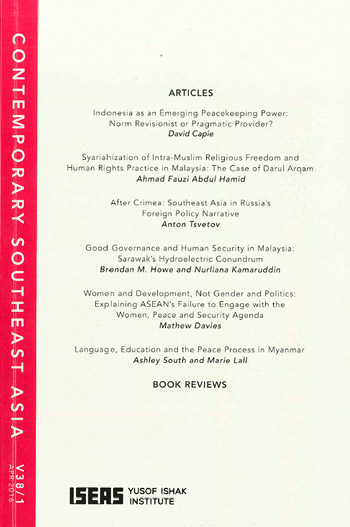Внутренняя политика России и международная политика
Онлайн библиотека книг, статей, докладов, документов
The Australia-China relationship touches on virtually every aspect of our national life. A mature and beneficial engagement of such breadth and depth requires the leadership and support of government at all levels, as well as public stewardship, media understanding, educational enhancement and the strategic involvement of the business community.Australia-China exchanges are also profoundly influenced by regional and bilateral relationships. Australia and China trade in goods as well as culture, politics and people, ideas and education, community and personalities.
Retired army colonel and New York Times bestselling author Andrew J. Bacevich provides a searing reassessment of U.S. military policy in the Middle East over the past four decades. From the end of World War II until 1980, virtually no American soldiers were killed in action while serving in the Greater Middle East. Since 1990, virtually no American soldiers have been killed in action anywhere else. What caused this shift? Andrew J. Bacevich, one of the country’s most respected voices on foreign affairs, offers an incisive critical history of this ongoing military enterprise—now more than thirty years old and with no end in sight. During the 1980s, Bacevich argues, a great transition occurred. As the Cold War wound down, the United States initiated a new conflict—a War for the Greater Middle East—that continues to the present day. The long twilight struggle with the Soviet Union had involved only occasional and sporadic fighting. But as this new war unfolded, hostilities became persistent. From the Balkans and East Africa to the Persian Gulf and Central Asia, U.S. forces embarked upon a seemingly endless series of campaigns across the Islamic world. Few achieved anything remotely like conclusive success. Instead, actions undertaken with expectations of promoting peace and stability produced just the opposite. As a consequence, phrases like “permanent war” and “open-ended war” have become part of everyday discourse.
Borders are a fundamental yet tricky issue in international politics. Despite their seemingly static nature, shifting frontiers are at the heart of many historical changes, not just through war. The Middle East and North Africa are experiencing important transitions, some of a which are traumatic. In the Middle East there is a «great imbalance»: power relationships are contested and far from clear and alliances, as well as the resilience of state institutions, are tested. Such a strategic outlook is especially conductive to violent conflict. One of the transitions currently underway has to do with state borders and their practical meaning. The chapters of the book cover (individually or in conjunction with other countries) Algeria, Egypt, Iraq, Iran, Israel, Lebanon, Libya, Palestine, Saudi Arabia and the Gulf monarchies, Syria, Turkey.
La monografía enfoca las relaciones del grupo BRICS con los países de América Latina y el Caribe (ALC). Se examinan los vinculos existentes entre cada integrante del Quinteto y los países del área latinoamericana, asi como cuestiones generales de las relaciones multilaterales políticas, financiero-comerciales y económicas. Se investigan asimismo los problemas de la ecología y del uso racional de los recursos naturales. En las páginas del libro se concede amplio espacio a uno de los miembros de BRICS, Brasil, que a la vez actúa como lider no formal de toda la comunidad lationamericana. Los autores subrayan que el surgimiento del BRICS como asociación de nueva generación, constituye un fenómeno natural. Demuestran que las coincidencias de intereses no solo en el marco del propio BRICS, sino tambíen en las relaciones con sus socios de ALC crean condiciones favorables para vencer las contradicciones que inevitablemente interfieren en el contexto de la formación de un mundo multipolar. La cooperación con los BRICS ofrece a los países de ALC una oportunidad más de apartarse de la anterior trayectoria de relaciones asimétricas con EE.UU. y los demás componentes del "Occidente colectivo".
Brothers Armed: Military Aspects of the Crisis in Ukraine is the latest book from the Centre for Analysis of Strategies and Technologies, a Moscow-based think tank focused on military and security issues. Presenting a collection of essays by leading Russian and Ukrainian military, security and political analysts, Brothers Armed charts the history of military reform and progress in Ukraine and Russia from the collapse of the Soviet Union to the 2014 annexation of Crimea.
The 2014 Nuclear Threat Initiative (NTI) Nuclear Materials Security Index is the second edition of a first-of-its-kind public assessment of nuclear materials security conditions around the world. Developed with the Economist Intelligence Unit (EIU), the NTI Index encourages governments to take actions to reduce risks and to provide assurances about the security of some of the world’s deadliest materials. The NTI Index and its broad framework for nuclear materials security was developed with guidance from an International Panel of Experts from nuclear- and non-nuclear-weapon states and from developed and developing nations, including Argentina , Australia, China, France, India, Japan, Kazakhstan, Pakistan, Russia, South Africa, Sweden, the United Kingdom, the United States, and Vietnam – among them a representative from the World Institute for Nuclear Security (WINS) and a former International Atomic Energy Agency (IAEA) official.
The EU-Asia relationship has changed. At this event, contributors to Changing Waters spoke about the future of EU-Asia relations from building a new development relationship, expanding the EU's role in Asian security, and Chinese perspectives on the EU.
China on the Ground in Latin America tells the story of the fundamental but little-discussed change in the nature of PRC engagement with Latin America and the Caribbean since 2009 as Chinese companies have begun to operate in the region. Author Evan Ellis provides an in-depth panorama of Chinese commercial activities across sectors from petroleum, mining, and agriculture to manufacturing, construction, and other services.
Humanity as never before shares a common destiny, whether it be in terms of the resources of the planet, the global environment, economic integration, or the movement of peoples, ideas, cultures. For better or worse humankind is a Community of Shared Destiny 命运共同体. The People’s Republic of China under the leadership of the Chinese Communist Party and its ‘Chairman of Everything’, Xi Jinping, has declared that it shares in the destiny of the countries of the Asia and Pacific region, as well as of nations that are part of an intertwined national self-interest. The Party, according to Marxist-Leninist-Maoist theory, is the vanguard of progressive social forces; it cleaves to the concept of shared destiny and its historical role in shaping that destiny. Since its early days nearly a century ago it has emphasised the collective over the inpidual, the end rather than the means. It addresses majority opinion while guiding and moulding the agenda both for today, and for the future.
Contemporary Southeast Asia, published since May 1979, is an internationally refereed journal that specialises in the domestic politics of ASEAN countries, strategic/security issues, political economy, regionalism and international affairs of Southeast Asia and the wider Asia-Pacific region. Apart from serving as a reliable and up-to-date source of information on various events, developments and trends in regional politics, international relations and security questions that affect Southeast Asia, CSEA also publishes the results of original research written by scholars, policymakers, think-tank analysts and doctoral candidates.
